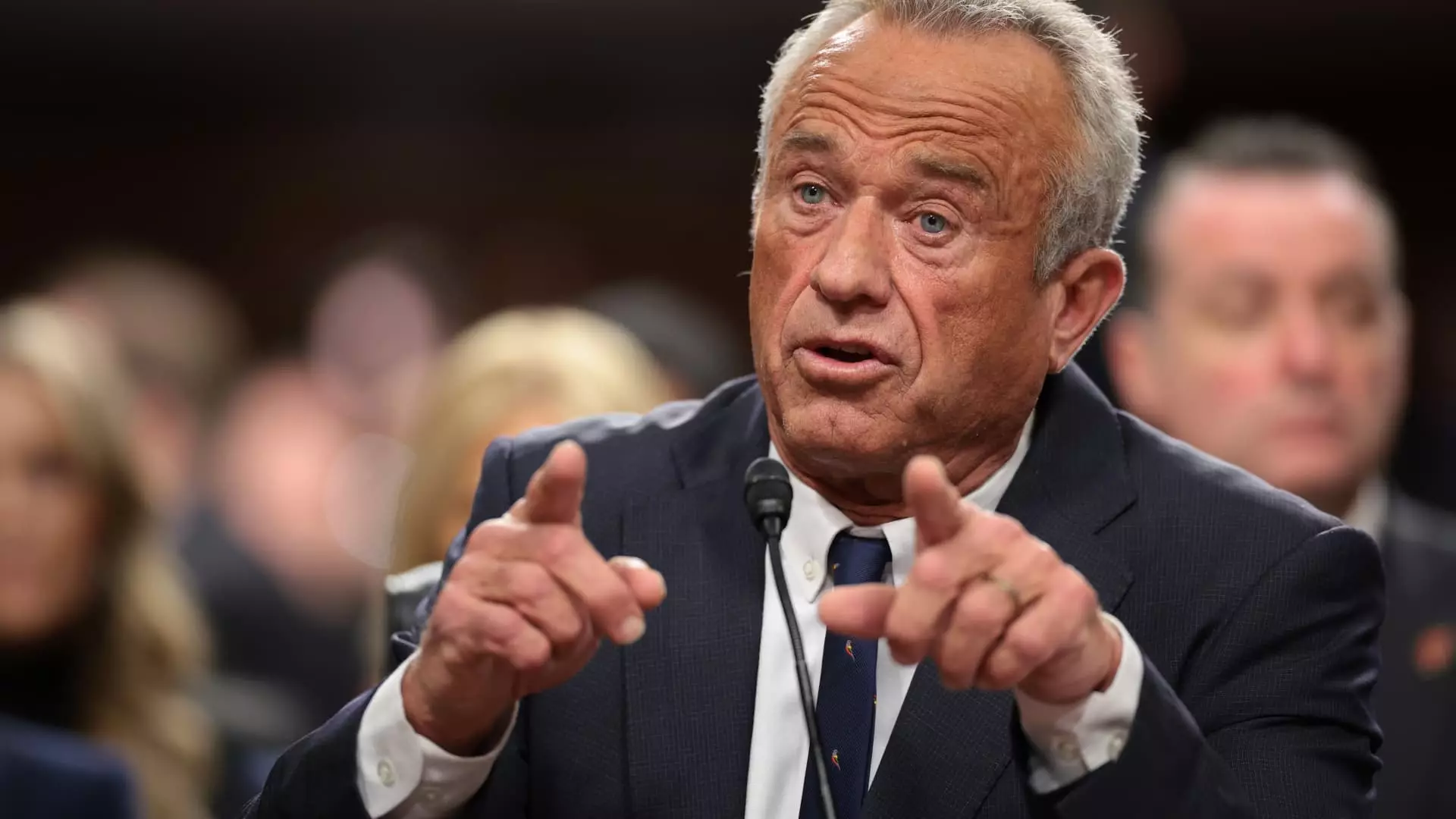The recent meeting between Health and Human Services Secretary Robert F. Kennedy Jr. and leading food executives has reverberated through the nation. Gone are the days when food industry giants could rely on the status quo; Kennedy’s commitment to purging “the worst ingredients” from the American food supply signals an undeniably significant shift in public health policy. With the Trump administration’s renewed focus on the potential health hazards posed by artificial dyes and other harmful additives, Kennedy’s approach could redefine the landscape of the food industry.
Kennedy’s ambitions echo a more thorough critique of how chronic health issues have been exacerbated by a lack of accountability in food production. When he speaks of wanting to eliminate harmful ingredients by the end of his term, it underscores a progressive agenda where public health is prioritized over unchecked profit motives. It’s refreshing to see such a robust challenge to the industry’s entrenched practices, especially those that have facilitated the chronic disease epidemic afflicting numerous Americans today.
Industry Response: Cautious Collaboration or Manipulative Compliance?
The initial reception by food industry leaders to Kennedy’s proposals might suggest a willingness to embrace change. Executives from major corporations like PepsiCo and Kraft Heinz have framed the dialogue as constructive. However, one must ponder whether this is genuine openness to reform or merely a strategic play to maintain the status quo. Industry insiders are astute—if they perceive Kennedy’s actions as a threat to their bottom line, they may simply play along to stall any significant measures while preserving profit margins.
It’s essential to question how much real change will occur. If history has taught us anything, it’s that corporate interests often dominate public health needs. The Consumer Brands Association’s optimistic response to the meeting seems to shy away from the pressing urgency that Kennedy advocates. Is this an authentic move toward healthier food, or simply a token gesture intended to quelch any imminent regulatory pressure coming down the pipeline?
Public Health vs. Political Theatre
Kennedy’s “Make America Healthy Again” platform explicitly takes aim at what he sees as a corrupt nexus between food and pharmaceutical corporations, raising genuine concerns about the collusion between industry and government bodies. While his rhetoric often spirals into a critique of the pharmaceutical industry’s influence, it’s critical to examine whether this examination extends to the potential for political miscalculation.
Furthermore, Kennedy’s history of skepticism, particularly concerning vaccines, risks overshadowing his health initiatives. His simultaneous push for dietary changes while signaling a review of immunization procedures may lead to greater public distrust in health authorities at a moment when trust is crucial. As childhood vaccination rates plummet, his moves could inadvertently complicate public health, pushing America further into a corner of misinformation.
Artificial Dyes and Their Cancer Connection
A focal point in this unfolding saga is the removal of artificial dyes, such as Red No. 3, which the FDA revoked authorization for, lurking behind a veil of controversial research, animal tests, and regulatory loopholes. Kennedy’s stance invokes a public reckoning—a demand for transparency in the products that populate supermarket shelves. Advocating for nutritious food over pharmaceutical solutions aligns with a growing populist sentiment that prioritizes genuine health over superficial, profit-driven fixes.
However, let’s not overlook the complexity of the food supply system in this nation. The challenge lies in instituting meaningful change while navigating a landscape riddled with profit-driven motives and entrenched habits—from supply chains to consumer preferences. The focus should extend beyond mere regulatory removal of artificial substances to include an overarching emphasis on food quality, sustainable agriculture, and nutritional education.
Health Advocacy in an Era of Distrust
In an age marked by skepticism toward institutions—government or otherwise—Kennedy’s approach could either fade into the backdrop of political theater or ignite a fervor for substantial reform across multiple facets of public health. The future of American health may depend not only on the ingredients in our food but on the trust we place in those advocating for change.
An imploding health crisis amidst profit-driven industries presents a unique opportunity. If Kennedy leverages this moment effectively, advocating for genuine shifts in both policy and perception, he could indeed leave a marked legacy. However, if his approach falters, allowing industry giants to overshadow not just his rhetoric but also the potential for meaningful reform, it may very well echo, forgotten, in the halls of political inactivity.

